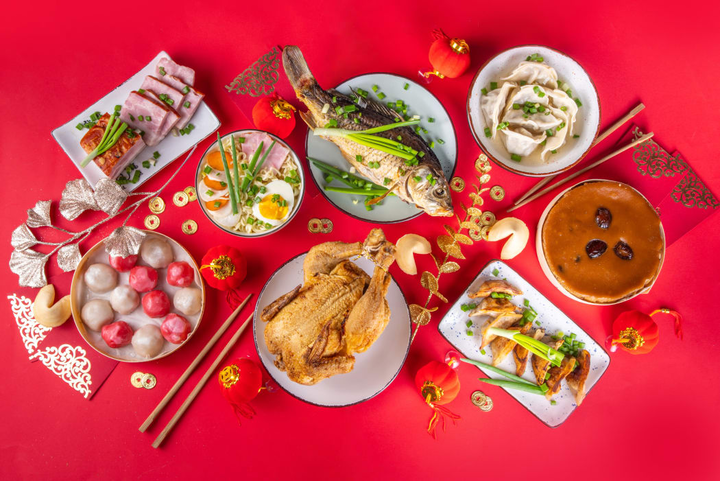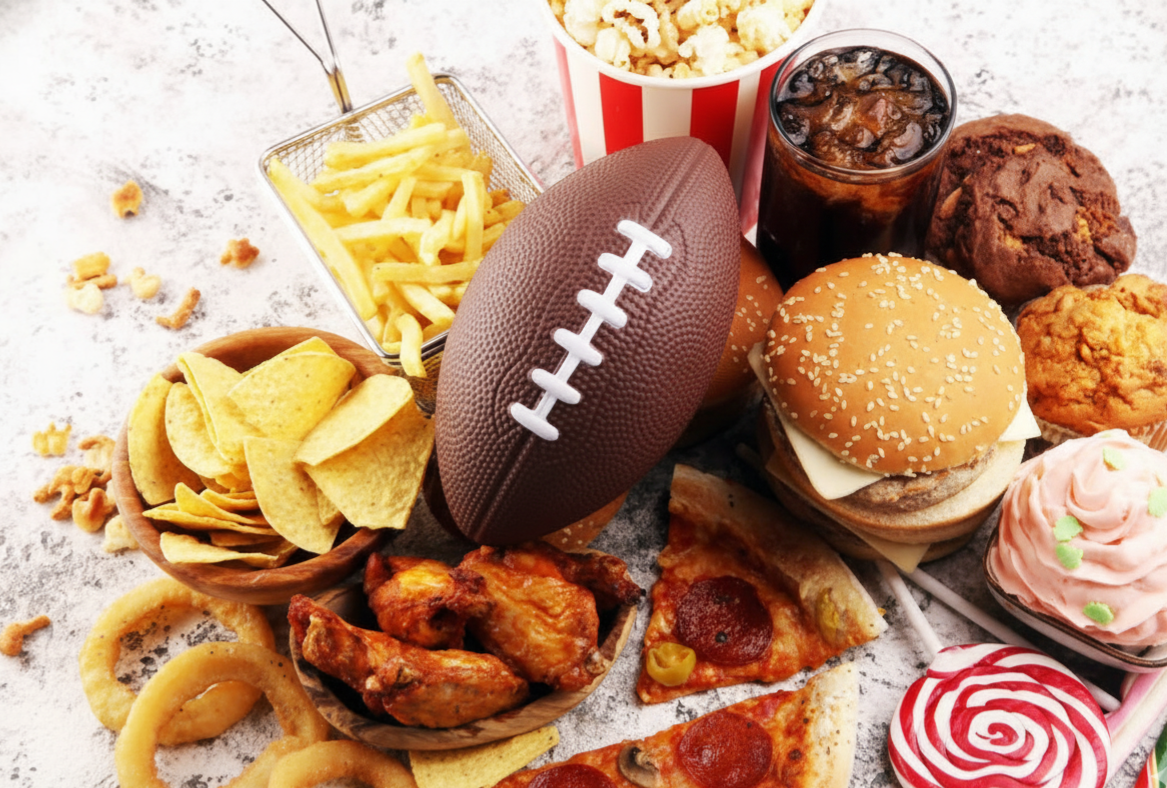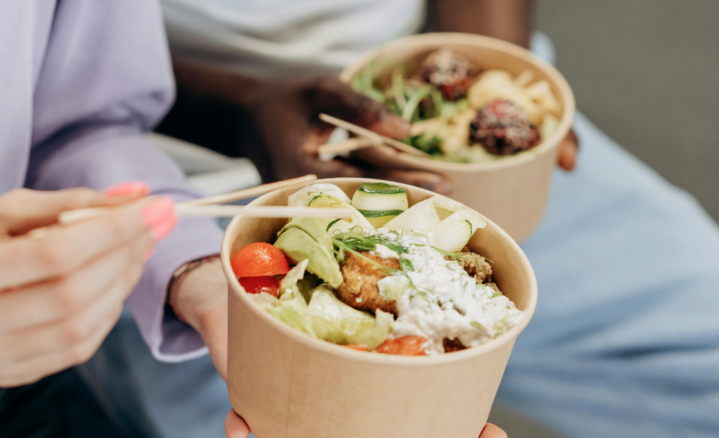Key Takeaways
- Craft compelling subject lines to grab attention and drive opens. Catchy, urgent, or offer-based subject lines like "Join us for a free drink" or "35% Off - One Day Only" can significantly boost email open rates.
- Use clear and actionable call-to-action (CTA) buttons with text that creates a sense of urgency. Phrases like "Start Ordering Now" or "Click to Save" are more effective than generic "Order Now" CTAs.
- Include high-quality, mouth-watering food images to stir cravings and emotions. Strategically placed visuals of new menu items or promotions can drive engagement and online orders.
- Leverage data analytics to understand your audience's preferences and buying patterns. This allows you to create more targeted, relevant email content that resonates with your subscribers.
According to email receiving statistics, an average person receives 100-200 emails every day, making email marketing a competitive space for businesses across industries. As a restaurant owner, you might wonder if email marketing is truly worth your time and investment when there are so many other marketing channels available.
Here's the truth: email marketing for restaurants is 36% more effective compared to traditional and social media marketing, delivering one of the highest ROIs in the digital marketing landscape—with an estimated return of $53 per invested dollar. That's a compelling reason to make email marketing a cornerstone of your restaurant's growth strategy. To learn more about the benefits of digital marketing for restaurants, consider exploring strategies that can enhance your online presence.
Why Email Marketing is Essential for Restaurants
When we talk about sending emails to subscribers, we're connecting with people who have already shown interest in your restaurant. These could be your regular customers, loyalty program members, or first-time visitors who enjoyed their experience enough to sign up for your communications. In essence, they're self-qualified leads waiting for updates, offers, and personalized content from their favorite restaurant.
Imagine the response when these engaged customers receive an email notification with the subject line "50% Flat Off on all Bills; just for today. Order Now". The potential for immediate conversion is significant because you're reaching people who already know and trust your brand.
Email marketing offers restaurants unique advantages that other marketing channels can't match:
10 Result-Driven Email Marketing Tips for Restaurants
To help you maximize the effectiveness of your restaurant's email marketing strategy, we've compiled these proven tips that can significantly boost your engagement and conversion rates.
1. Craft Compelling Subject Lines
A well-written subject line has the power to convince and convert, so make sure to pay close attention to them. Your subject line can highlight a perk recipients receive for opening the email, include a funny remark, or create a sense of urgency. Here are some effective examples to try in your next email marketing campaign:
- Join us at [details of the day, hour, event] – free drink on us
- 35% Off – You have ONE DAY to claim this
- Bring your family for [deal] this Christmas Eve
- TODAY only: 10% discount on [New Menu Item Launch]
- Happy Hours Start Wednesday at 1 pm. Don't miss it!
- Calzones (or any popular menu item) are Back - Order Now!
The key to crafting compelling subject lines is understanding what motivates your customers. Is it exclusivity, savings, limited-time offers, or new menu items? Test different approaches to see what resonates best with your audience. For more insights on crafting effective subject lines and email content, consider reading about top email marketing tips to convince and convert your restaurant customers.
2. Use Clear and Actionable CTAs
Call-to-action (CTA) buttons guide customers to take the specific action you want them to take. Effective CTAs feature action-oriented text and create a sense of urgency to yield impressive click-through rates.
Instead of generic phrases like "Order Now" or "Enter the Website," use more compelling, action-packed words like "Save Big," "Start Ordering," or "Let's Party." Your CTA text should align with your subject line and overall email message.
For example, you could use button text like:
- Start Ordering Now to Get [offer]
- Click to Save on Your Next Meal
- Get Food Delivered Now
- Claim Your Birthday Treat
- Reserve Your Table Today

Pro Tip: Your CTA button should be prominent enough to draw attention, but not so large that it overwhelms the reader. Use contrasting colors that align with your brand palette to make buttons stand out.
3. Include High-Quality Food Images
Strategically placed images of food in your emails can make a significant difference in engagement and conversion rates. High-quality food photography stirs emotions and reminds subscribers why they signed up for your newsletters in the first place.

Make your emails a feast for the eyes with professional, appetizing images that showcase your menu items in the best light. When customers can see what they're missing, they're more likely to act on your offers.
4. Leverage Customer Data and Analytics
The first step to successful email marketing is recognizing your target audience. Data analytics can help you gain in-depth insights into your customers and identify buying patterns. This enables you to create much more focused marketing content that resonates with different customer segments.
With the right integrations, you can collect and analyze data such as:
- Most popular menu items ordered by each customer
- Average order value and frequency
- Preferred ordering times and days
- Special occasions like birthdays and anniversaries
- Email engagement metrics (opens, clicks, conversions)
Use this information to segment your email list and create targeted campaigns that speak directly to customers' preferences and behaviors. For example, send pizza promotions to customers who frequently order pizza, or happy hour announcements to those who typically visit during early evening hours.
5. Optimize for Mobile Devices
With over 60% of emails now opened on mobile devices, optimizing your restaurant emails for smartphones and tablets is no longer optional—it's essential. Mobile-friendly emails ensure that your carefully crafted content and offers are accessible to customers wherever they are.
To create mobile-optimized emails:
- Use responsive email templates that automatically adjust to screen size
- Keep subject lines under 50 characters to ensure they display fully
- Use larger font sizes (minimum 14px for body text)
- Make CTA buttons large enough to tap easily with a finger (minimum 44x44 pixels)
- Optimize images for quick loading on mobile networks
- Test your emails on multiple devices before sending
Remember that many customers will check your email while on the go, perhaps even when they're deciding where to eat. A seamless mobile experience can be the difference between winning their business or losing it to a competitor with a more user-friendly approach.
6. Personalize Your Emails Beyond Names
While including a customer's name in the subject line or greeting is a good start, true personalization goes much deeper. Modern email marketing allows you to customize content based on customer preferences, past orders, and behavior patterns.
Advanced personalization strategies include:
- Recommending menu items based on past orders
- Sending special offers for favorite dishes
- Acknowledging loyalty milestones (e.g., "Thanks for being a customer for 1 year!")
- Referencing previous positive experiences
- Tailoring content based on dietary preferences
Personalized emails generate 6x higher transaction rates, yet 70% of brands fail to use them. By investing in personalization, your restaurant can stand out in a crowded inbox and create more meaningful connections with customers.
7. Automate Your Campaigns for Consistency
Email automation allows you to send the right message at the right time without having to manually create and send each campaign. By setting up triggered emails based on specific actions or timeframes, you can maintain consistent communication with your customers while saving valuable time.
Effective automation sequences for restaurants include:
- Welcome series for new subscribers
- Birthday and anniversary greetings with special offers
- Re-engagement campaigns for customers who haven’t ordered in a while
- Post-dining follow-ups requesting feedback
- Abandoned cart reminders for online ordering
Automation ensures that no opportunity to connect with customers falls through the cracks, even during your busiest periods. Most email marketing platforms offer user-friendly automation tools that integrate seamlessly with your digital ordering system.
8. Avoid Spam Filters and Build Trust
Even the most compelling email won't generate results if it never reaches the inbox. To ensure deliverability and build trust with subscribers:
- In your welcome email, kindly ask new subscribers to mark your address as safe
- Use a recognizable sender name (your restaurant name)
- Avoid spam trigger words like "free," "guarantee," and excessive exclamation points
- Maintain a consistent sending schedule
- Clean your email list regularly by removing inactive subscribers
- Include your physical address and unsubscribe option in every email
Building trust also means delivering on your promises. If you offer a discount or promotion in your email, make sure it's easy to redeem and your staff is aware of it. Consistency between your email marketing and the actual customer experience is crucial for long-term success.
9. Plan Your Email Calendar Strategically
A strategic email calendar ensures you're sending the right messages at optimal times throughout the year. By planning ahead, you can align your email campaigns with seasons, holidays, local events, and your restaurant's promotions.
Consider including these types of emails in your annual calendar:
- Seasonal menu announcements
- Holiday promotions and special event invitations
- Local event tie-ins (sports games, festivals, concerts)
- Weekly specials and happy hour reminders
- Loyalty program updates
- Behind-the-scenes content (chef interviews, kitchen tours)
The best time to send promotional emails to restaurant customers is typically Tuesday through Thursday, between 10 AM and 2 PM. However, test different days and times with your specific audience to find your optimal sending schedule.
Download our comprehensive restaurant marketing calendar to help plan your email campaigns throughout the year.
10. Measure and Optimize Email Performance
The true power of email marketing lies in its measurability. By tracking key metrics, you can continuously refine your approach and improve results over time.
Key performance indicators (KPIs) to monitor include:
- Open rate: The percentage of recipients who open your email
- Click-through rate (CTR): The percentage who click on links within your email
- Conversion rate: The percentage who complete a desired action (placing an order, making a reservation)
- Bounce rate: The percentage of emails that couldn't be delivered
- Unsubscribe rate: The percentage who opt out after receiving your email
Industry benchmarks for restaurant email marketing include average open rates of 20% and click-through rates of 1.5%. If your metrics fall below these benchmarks, consider A/B testing different elements of your emails—such as subject lines, send times, content format, and CTAs—to identify what resonates best with your audience.
How to Build and Grow Your Restaurant Email List
Before you can implement these email marketing tips, you need a healthy subscriber list. Here are effective strategies to build and grow your restaurant's email database:
- Offer sign-up incentives: Provide immediate value for new subscribers, such as a free appetizer, dessert, or discount on their next visit.
- Collect emails during the ordering process: Add an opt-in checkbox to your online ordering form and train staff to ask for emails during phone orders.
- Use QR codes in-restaurant: Place QR codes on table tents, receipts, and menus that lead to a sign-up form.
- Leverage social media: Promote your email list on your social platforms, highlighting the exclusive offers subscribers receive.
- Host contests and giveaways: Require an email address to enter, but ensure you have proper consent for marketing communications.
- Add sign-up forms to your website: Place prominent forms on your homepage, menu pages, and reservation system.
Remember that quality matters more than quantity. A smaller list of engaged subscribers will generate better results than a large list of uninterested contacts. For more information on building a strong email list, consider the importance of organizing effective email marketing for your restaurant.
Examples of Successful Restaurant Email Campaigns
Learning from successful email campaigns can inspire your own strategy. Here are some effective approaches that restaurants have used to drive engagement and sales:
Welcome Series
A multi-email sequence that introduces new subscribers to your restaurant, shares your story, highlights signature dishes, and provides an incentive for their first order.
Limited-Time Offers
Creating urgency with time-sensitive promotions, such as "Weekend Special: Order within 48 hours to receive 20% off your entire order."
Loyalty Rewards
Recognizing repeat customers with exclusive offers: "Thanks for your 10th order! Your next appetizer is on us."
Seasonal Menu Launch
Building excitement around new menu items with mouth-watering images and chef commentary on ingredient sourcing and inspiration.
Re-engagement Campaign
Winning back lapsed customers with personalized messages: "We miss you! It's been 3 months since your last visit. Here's 15% off to welcome you back."
The most successful campaigns share common elements: compelling visuals, clear value propositions, personalized content, and strong calls to action that make it easy for customers to respond.
Elevate Your Restaurant Marketing with Restolabs
While effective email marketing can significantly boost your restaurant's sales, it works best as part of an integrated digital strategy. Restolabs provides a comprehensive online ordering platform that seamlessly connects with your email marketing efforts.
Our commission-free solution gives you:
- Complete ownership of your customer data for better email targeting
- Direct integration with popular email marketing platforms
- Detailed analytics to understand customer preferences and ordering patterns
- Custom landing pages for email campaign promotions
- Tools to track email-driven conversions and ROI
The first step to successful email marketing is having a website or landing page where your customers will complete their journey. You don't want them to open an email and forget about it because there was no clear path to action. If you're yet to establish your digital presence, schedule a call with our team today to learn how our platform can support your email marketing strategy and overall business growth.
Ready to get started? Try our all-in-one digital ordering platform free for 30 days!
Frequently Asked Questions
Email marketing offers restaurants numerous benefits including high ROI (approximately $53 for every $1 spent), direct access to interested customers, increased order frequency, enhanced customer loyalty, and measurable results. It's 36% more effective than traditional and social media marketing for restaurants, allowing you to send targeted promotions to customers who have already shown interest in your establishment. Email marketing also helps build long-term relationships with diners through personalized communication. To learn more about the future of email marketing and how artificial intelligence and deep learning can enhance your email marketing strategy, consider exploring the latest trends and technologies.
Effective restaurant email subject lines create urgency, offer clear value, or trigger curiosity. Use personalization when possible (e.g., including the recipient's name or referencing past orders). Successful examples include "Join us this Friday – free drink on us," "35% Off – You have ONE DAY to claim this," and "Your favorite dish is back on the menu!" Keep subject lines under 50 characters to ensure they display fully on mobile devices, and A/B test different approaches to see what resonates best with your audience.
Restaurants should send a variety of emails to engage customers throughout their journey, including welcome emails for new subscribers, promotional offers and discounts, loyalty program updates, event invitations (for special dinners or tastings), transactional emails (order confirmations, receipts), re-engagement campaigns for inactive customers, birthday and anniversary greetings with special offers, post-dining follow-ups requesting feedback, and abandoned cart reminders for online ordering. A diverse email strategy keeps your communications fresh and relevant to different customer needs.
Build your restaurant's email list by offering sign-up incentives like a free appetizer or discount on the next order. Collect emails through your website with prominent sign-up forms, in-restaurant with QR codes on menus and table tents, during the ordering or reservation process, and through your POS system at checkout. Social media campaigns with exclusive subscriber benefits can also drive sign-ups. Always ensure you have proper consent for marketing communications and make the value of subscribing clear to potential list members.
To avoid spam filters, ask subscribers to whitelist your email address in your welcome email. Use a verified sending domain that matches your restaurant's website domain. Avoid spam trigger words and phrases like "free," "guarantee," and excessive exclamation points or all-caps text. Maintain consistent sending schedules and volumes rather than sudden large batches. Clean your list regularly by removing inactive subscribers, and ensure you're following email marketing regulations like including your physical address and an unsubscribe option in every email.
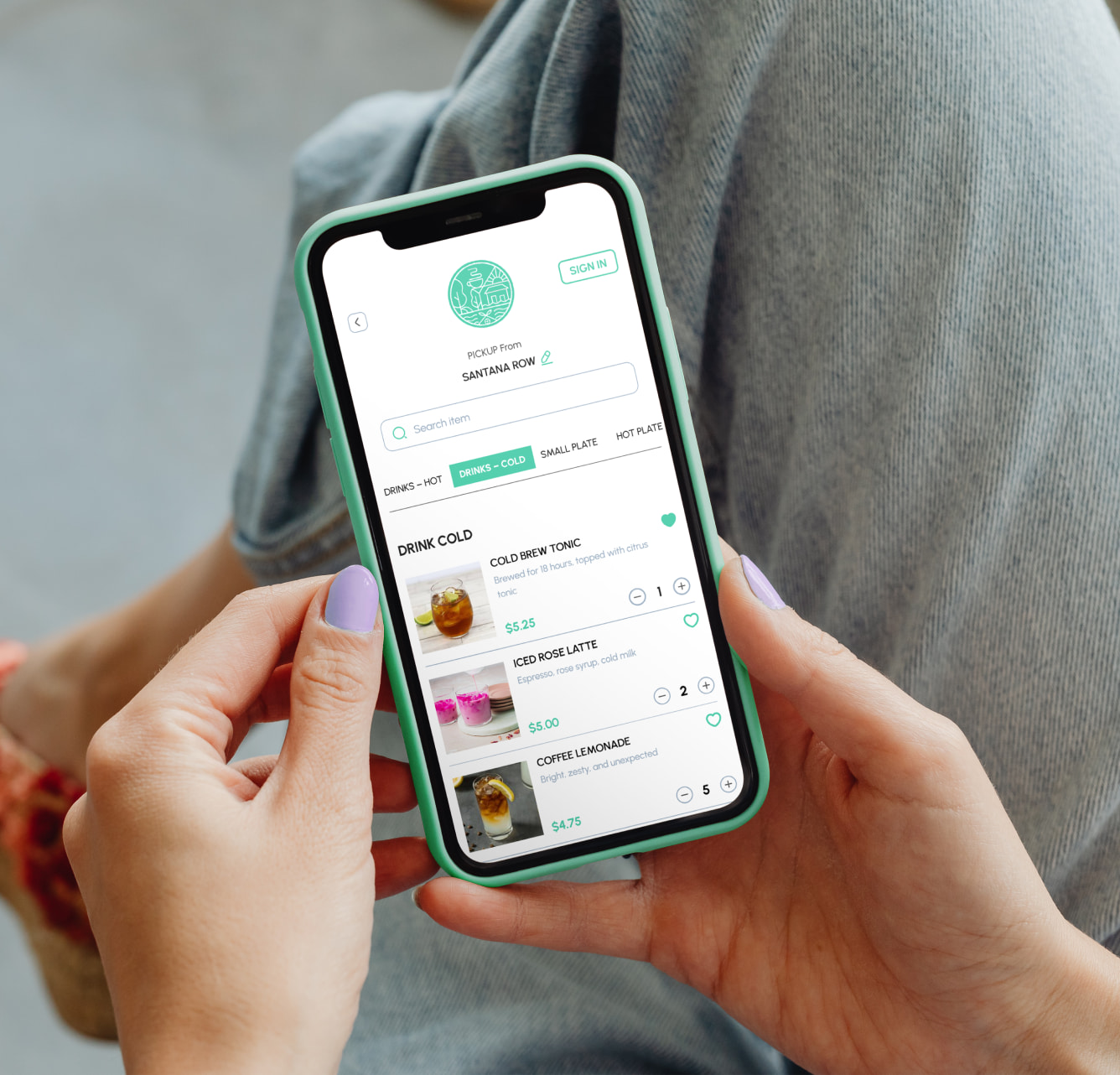

.gif)
%252520(4).png)
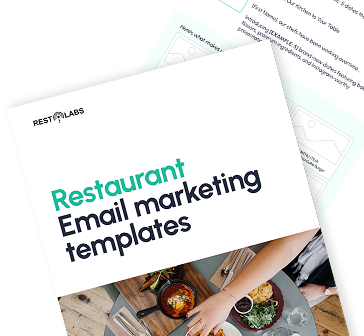
.png)

